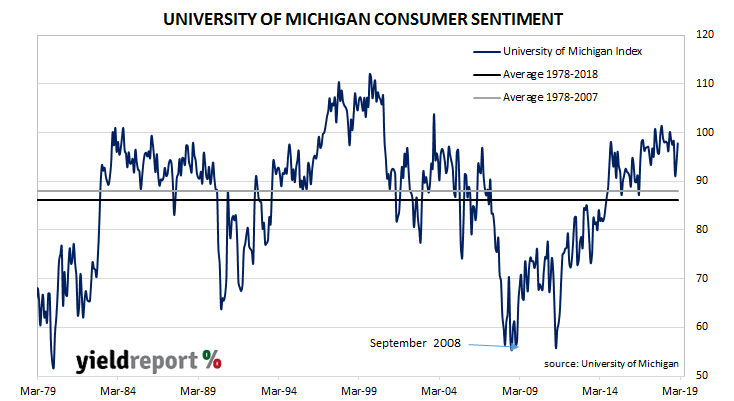US consumer confidence had been under pressure in recent months and less-confident households are generally inclined to spend less and save more. As private consumption accounts for a majority of GDP growth in advanced economies, household spending is a major determinant of a country’s overall expenditure. However, the latest survey indicates household confidence has bounced back after a sharp drop at the very start of the year.
The latest survey conducted by the University of Michigan indicates confidence levels of US households have recovered back to pre-Christmas levels before the federal shutdown and trade disputes took the spotlight. The University’s Index of Consumer Sentiment result bounced from February’s revised figure of 93.8 to 97.8 in March, more than the market estimate of 95.8.
Richard Curtin, the chief economist of the University’s Survey of Consumers unit, said the higher reading “entirely due” to lower and middle-income households. Sentiment among higher-income households fell.

The University of Michigan’s index is one of two monthly US consumer sentiment indices, the other being the Conference Board’s Consumer Confidence Survey. The University’s survey covers personal finances, business conditions and buying conditions.

